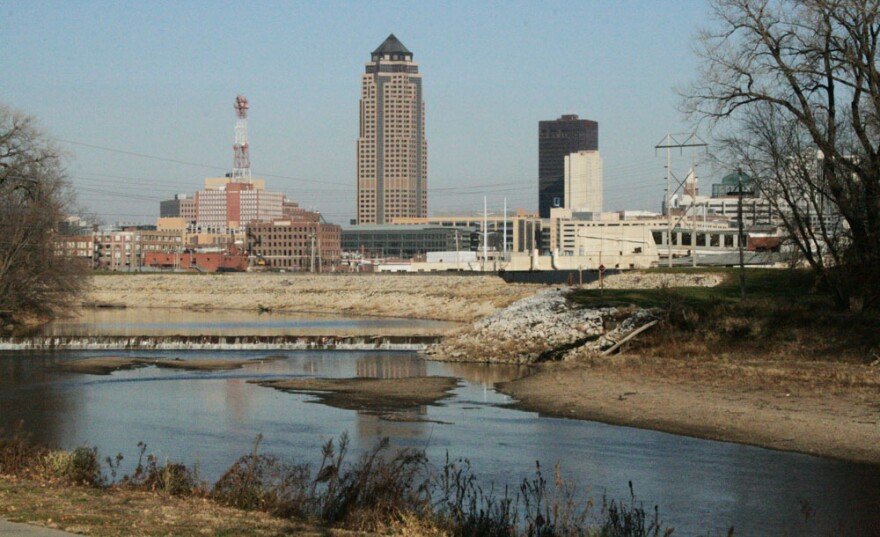It’s that time of year when Midwest farmers are preparing to plant their crops. This year though more may be thinking about the water in their fields, that’s because a lawsuit by Iowa’s largest water utility is targeting the nitrates farms send downstream and polluting the Des Moines metro's drinking water sources. Local governments and big agriculture interest groups alike are now watching this lawsuit.
Right now there’s no regulation requiring that Iowa farmers address the water leaving their fields through underground tiles. But that doesn’t mean that some aren’t trying to address it.
On a chilly early spring morning, Nathan Anderson is walking across one of his fields of brown corn stubble and stops to uncover something you might not expect to see this early in the year.

“You see some of these green tips starting to get going again?” Anderson says as he points out the top of his sprouting rye crop that he sowed last fall. By having plants growing year round, Anderson is able to keep more of the nitrates from leaving this field through his underground drainage tiles. These are called cover crops and they’re one of the many tools farmers have in their toolbox to retain water. Anderson says while it’s costly it makes sense in the long run.
“It’s hard to put dollars on soil health. It’s a very tough thing to do,” Anderson says. “There’s a number of scientists trying but it’s still very hard to do. And so we look at cover crops as a long-term benefit to our operation. We’re not talking about a return we’re going to get this year.”
The Des Moines Water Works has sued three county boards of supervisors that have responsibility for the drainage districts these tiles lead to for violating the safe drinking water act. They want these drainage districts to be held to the same regulation as them – which would force farmers to keep nitrates out of the river. High Levels of nitrates has forced the utility to run a costly denitrification system.
“Certainly environmental protection is expensive but the proposition underlying it is that the environment

is worth protecting,” says Des Moines Water Works CEO Bill Stowe. “Without protection what’s happening in the current system is the cost of production is being pushed from the producers down here to our consumers.”
Stowe says if the high nitrate levels persist, the utility will need to replace its aging denitrification system with one that costs $150 million.
While there’s no law requiring farmers to change their land management practices, the state and Iowa State University are encouraging them to plant cover crops, buffer strips or construct wetlands among possible solutions. Now, the race is on between farmers deciding if they can embrace those solutions before the court forces to.
Iowa State Agriculture Economist Chad Hart says farmers across the country are closely watching.
“While this is not the first lawsuit of its type it’s the first in the upper-Midwest and the main crop production region,” Hart says. “Probably the pre-cursor was what we see in the Chesapeake Bay area and some of the work out there where there was voluntary efforts and regulatory efforts through the courts to manage water quality.”
Hart says the second wave of both those approaches is taking place in Iowa.
Hart says less than 5 percent of the 24 million row crop acres in Iowa are in some type of water quality conservation. What happens here in Iowa could show other urban communities with water quality problems how far they can go in trying to get rural farm country to foot the bill for clean water.






